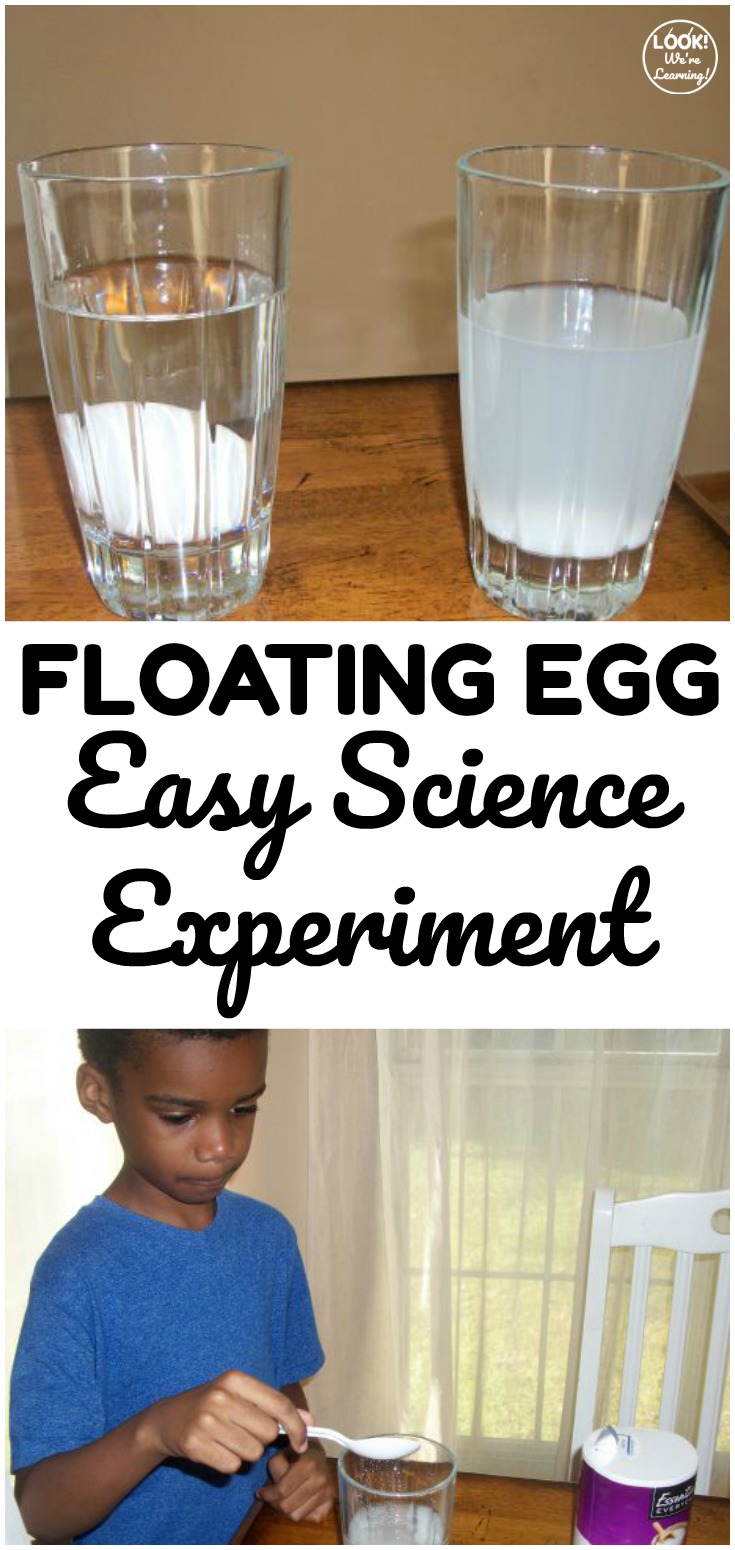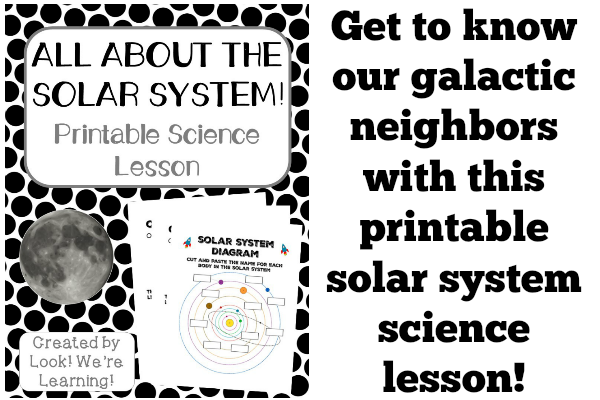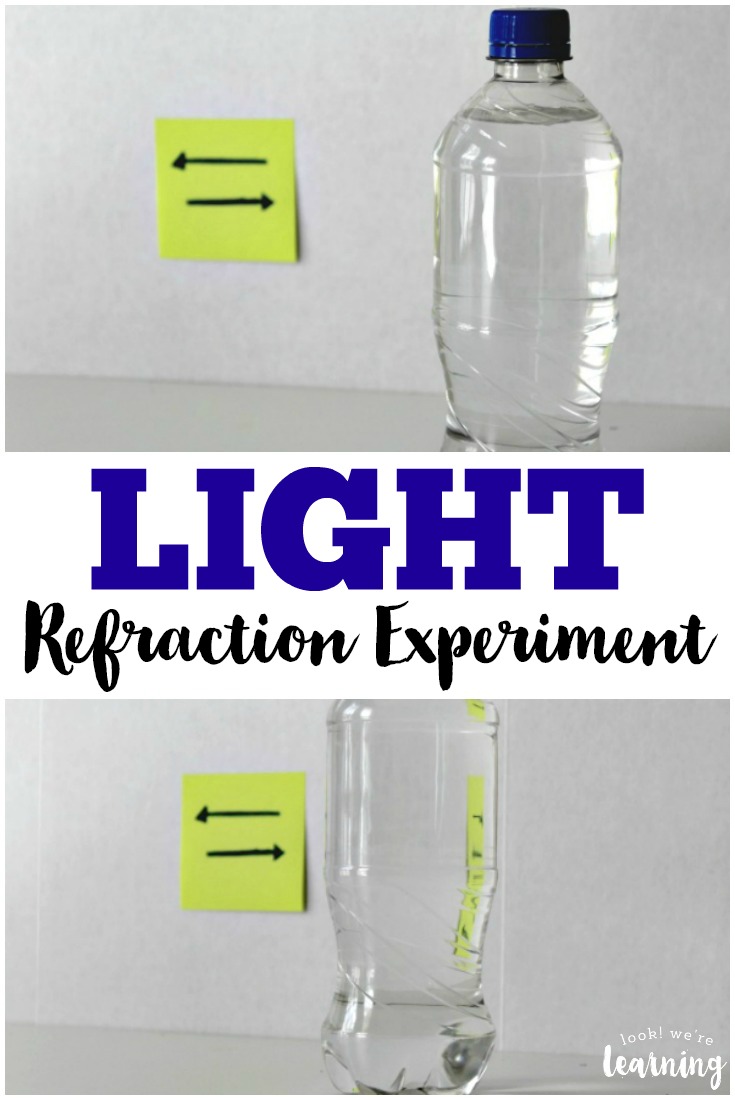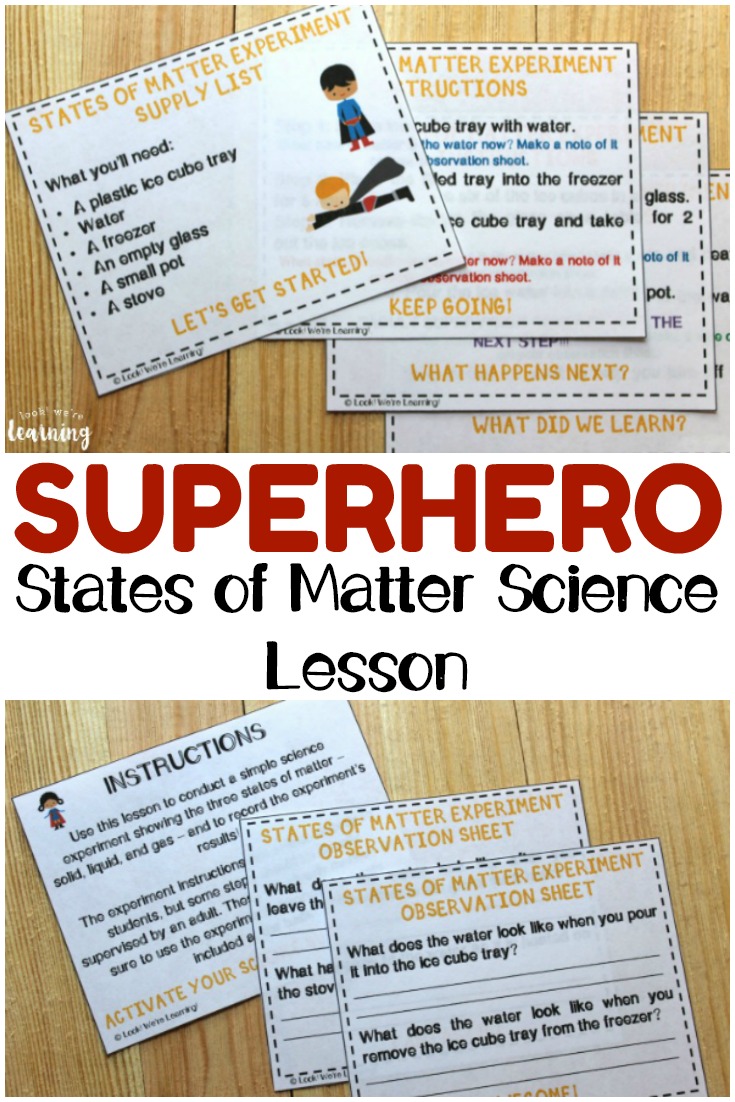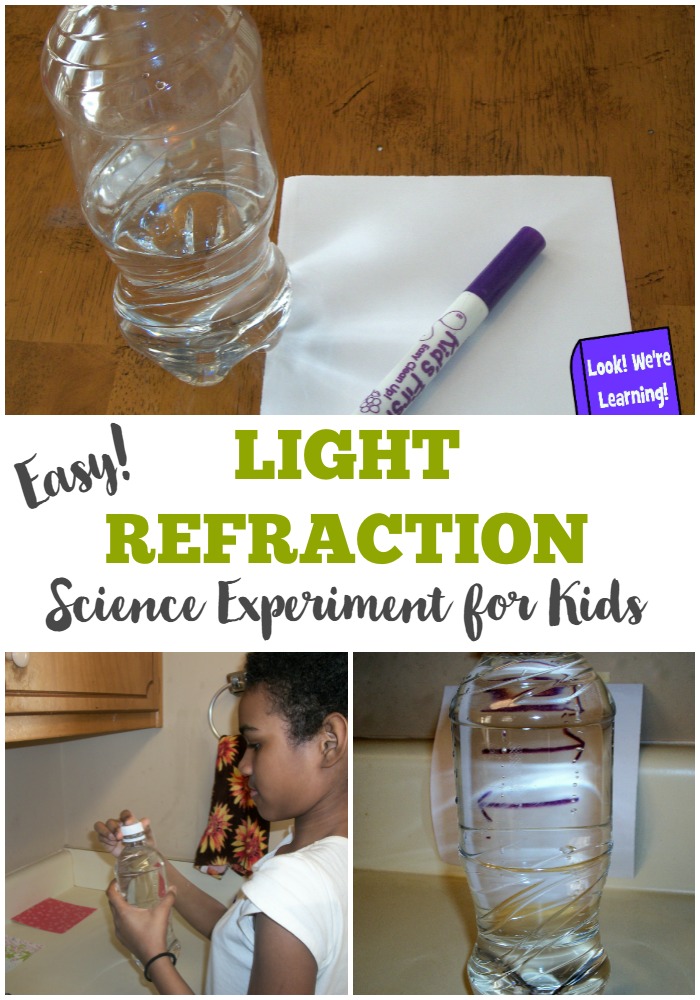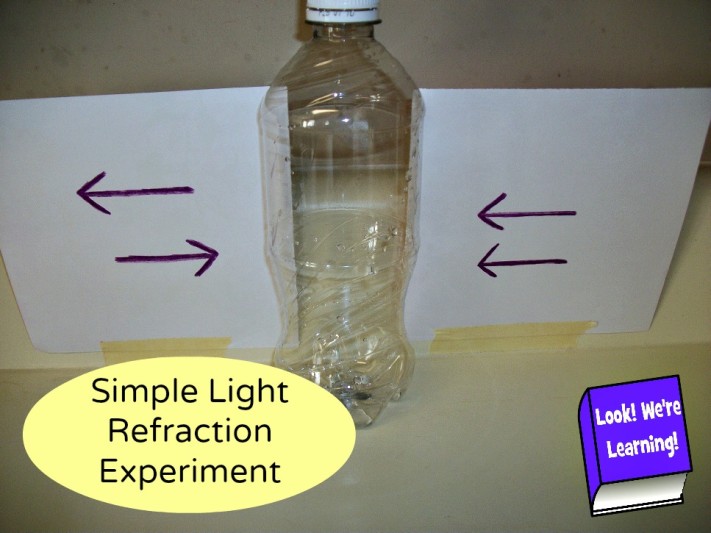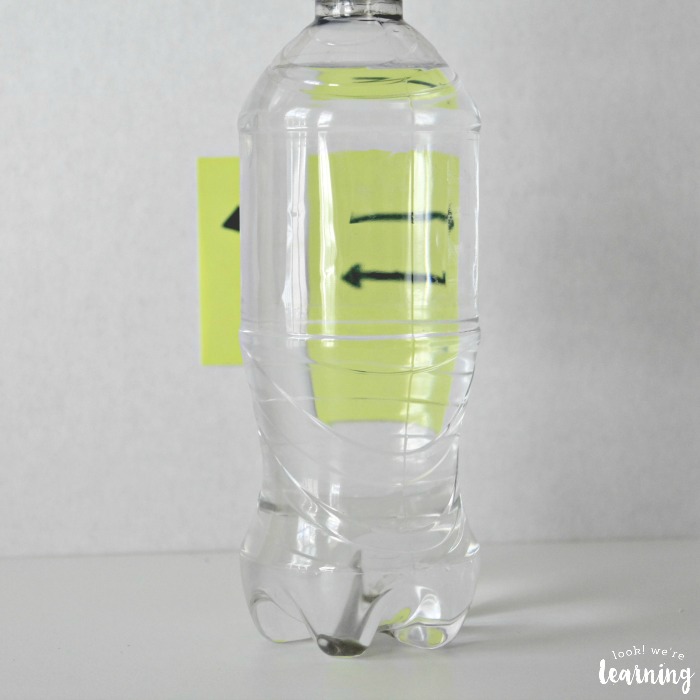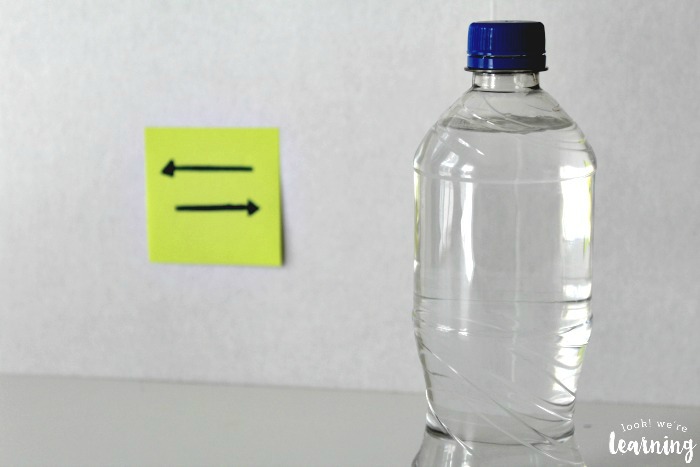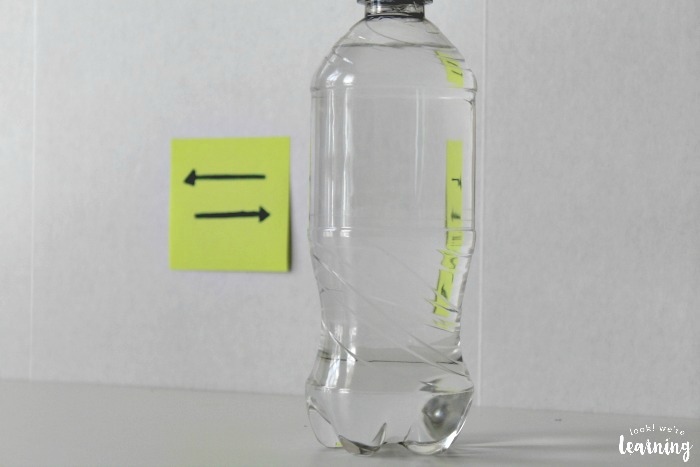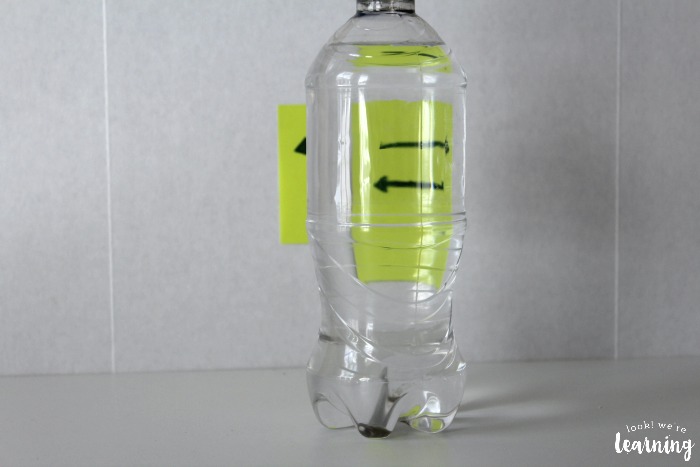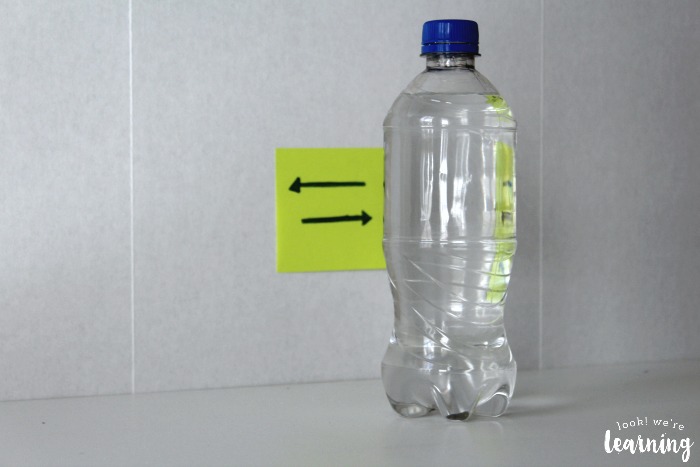It’s time for another one of our simple science experiments!
This time, we’re learning about salinity and floating with a simple floating egg experiment.
My boys are entering first and second grade, respectively.
These are excellent ages to introduce science experiments – especially ones that are low-prep, inexpensive, and simple to do, right?
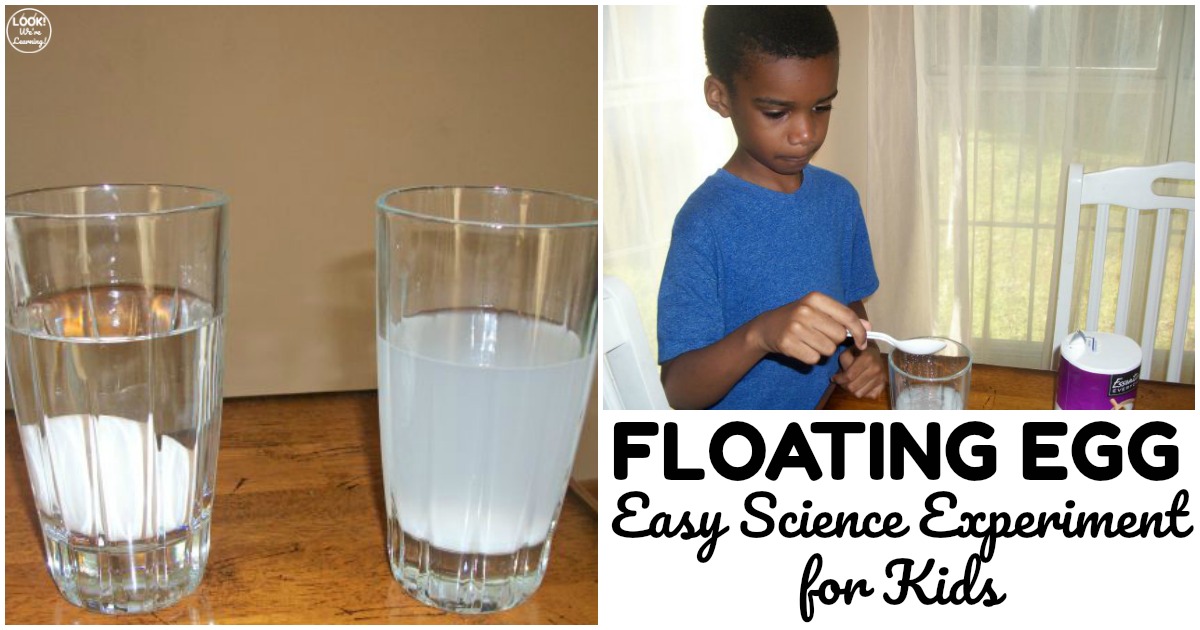
Check out how we learned about salinity by making an egg float!
This would also be a great science lab for small groups or science centers.
If you enjoy this activity, don’t miss our colorful celery experiment or our superhero states of matter experiment!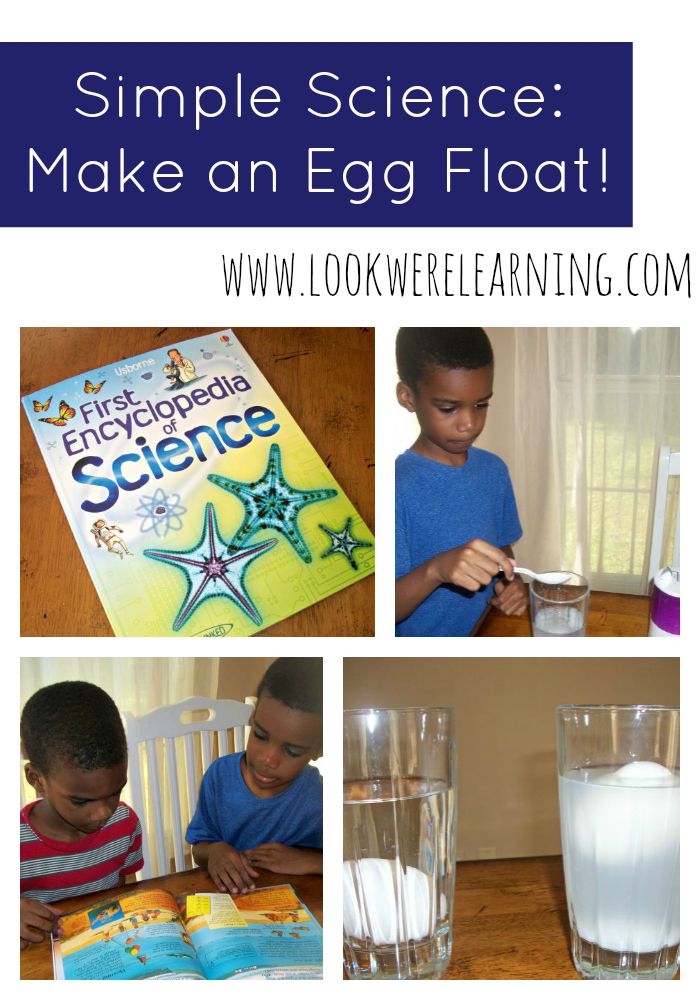
Simple Science Experiment: Floating Egg Experiment
Like all of our science experiments, this one is super easy and requires absolutely no scientific expertise.
To complete this easy science activity, you’ll need the following:
- Clear glass
- Egg
- Salt
- Spoon

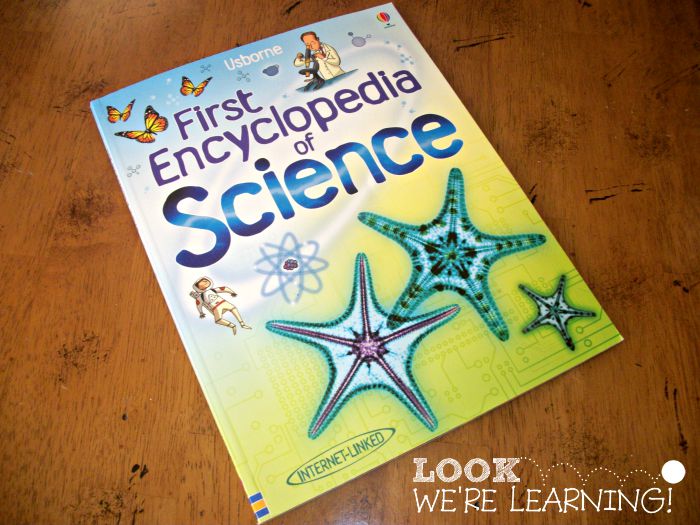
We started by cracking open the Usborne First Encyclopedia of Science. (This is an affiliate link.)
It’s an excellent, hands-on introduction to scientific concepts for kids in grades 1-4.
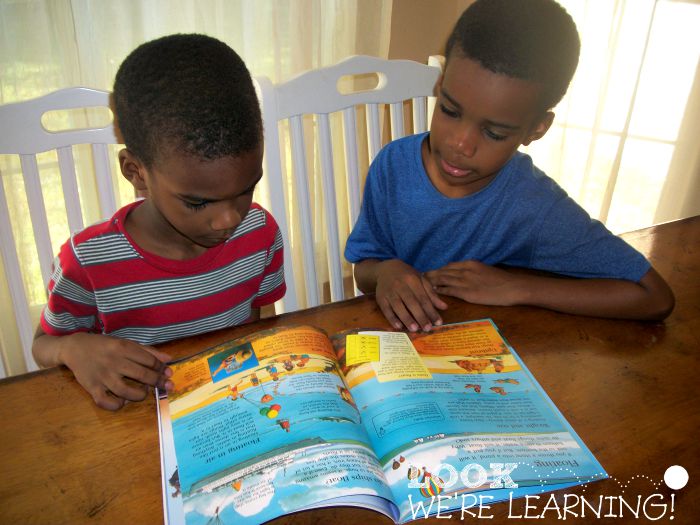
The boys and I read the section about floating together.
We learned that there are places on Earth where water is so salty you can actually read a newspaper while you float along!
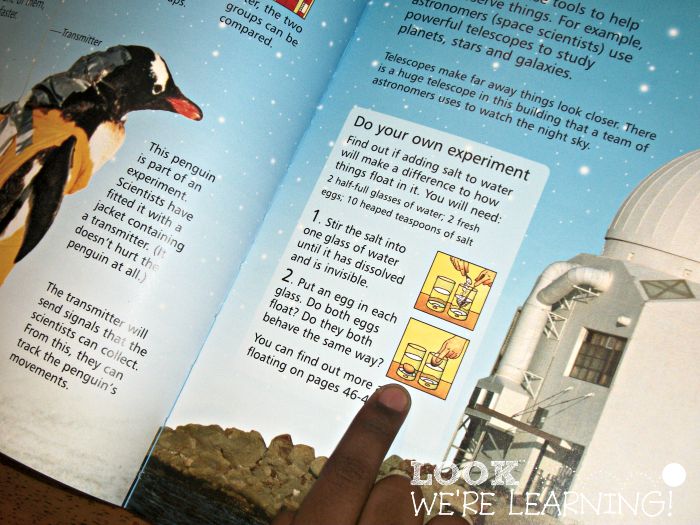
In the book, we read the instructions to learn how to recreate the same type of environment that allows human beings to float in salty water.
Then, we were off and running!
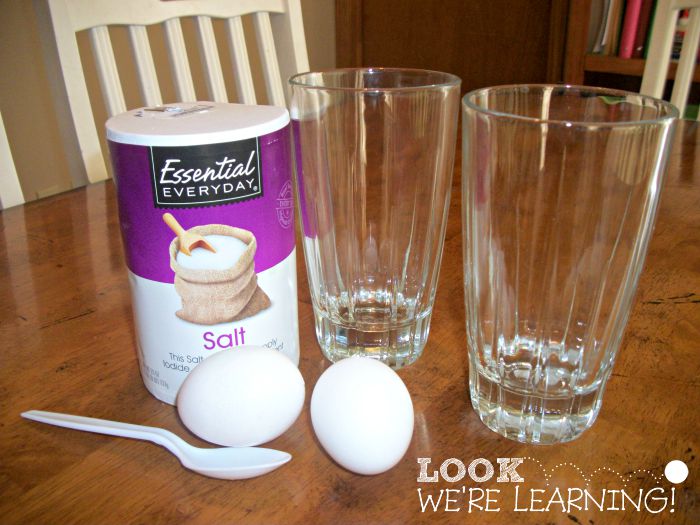
We gathered the supplies and got to work.
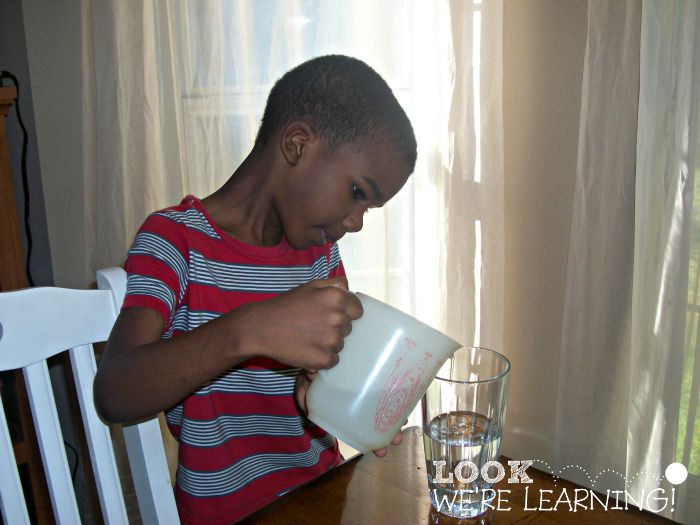
We poured each glass half full of water.
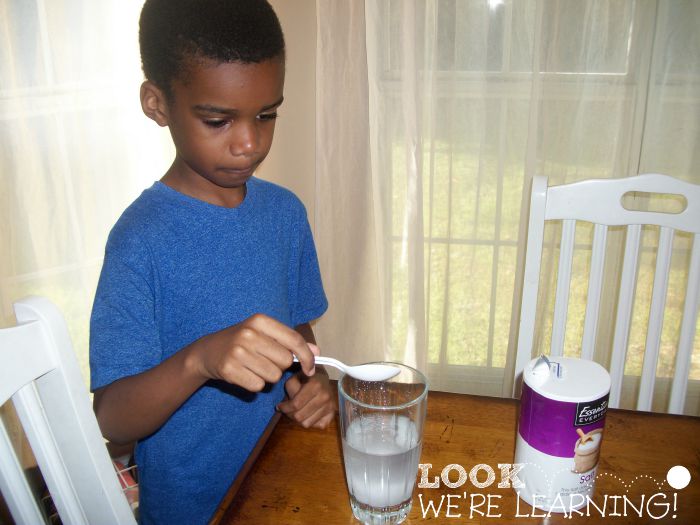
Then we added 10 teaspoons of salt to one of the glasses.
(Don’t put any salt in the other glass of water.)
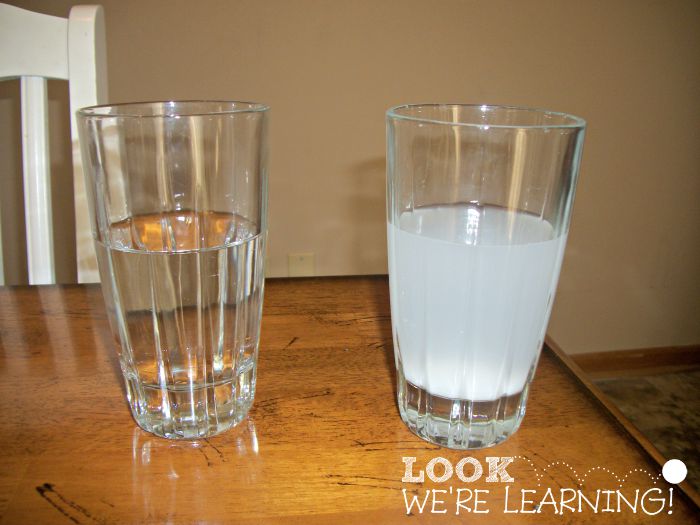
Like so.
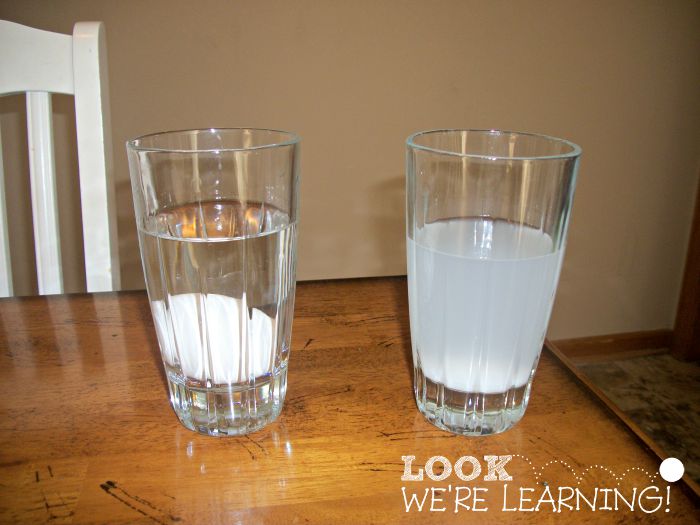
When we placed an egg into the glass that didn’t have salt in it, the egg sank right to the bottom like normal.
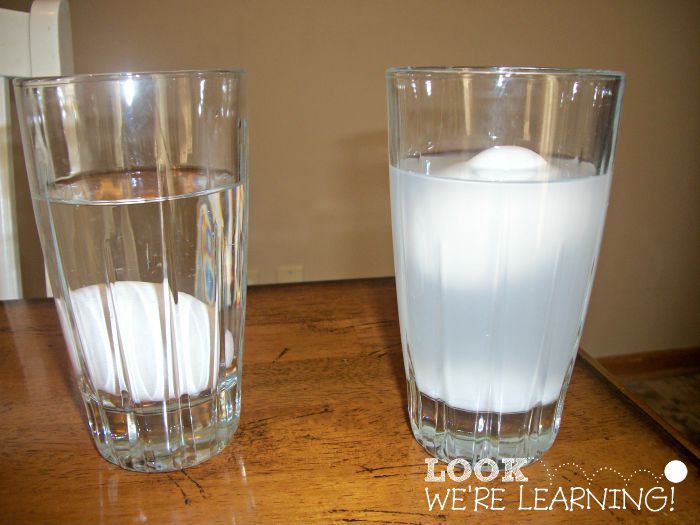
But when we added an egg to the glass filled with salty water, it floated right to the top.
The kids got a kick out of watching me push it down, only to see it pop right back up!
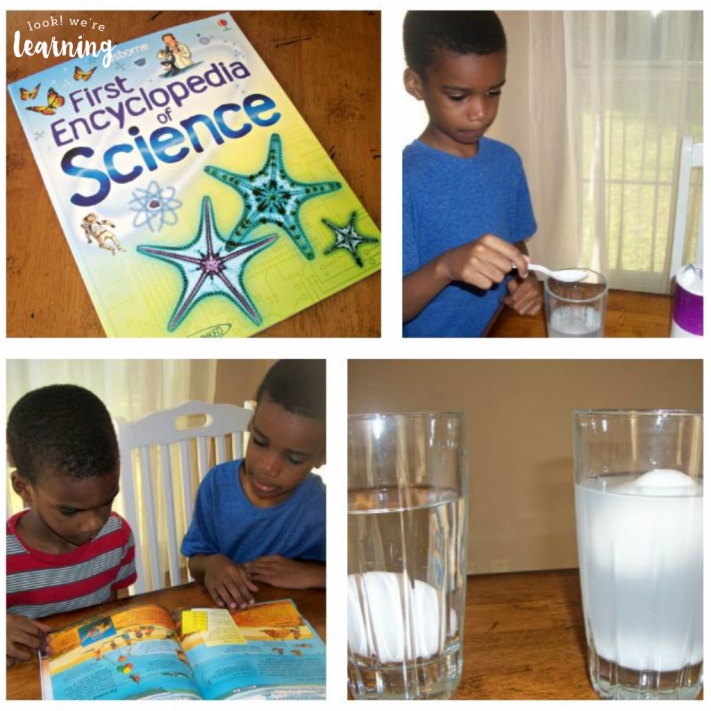
And that’s how salinity works! Salty water is denser (heavier) than plain water.
So heavy, in fact, that it can support the weight of heavier objects like an egg.
Neat!
This entire floating egg experiment took about 10 minutes from start to finish.
So if you’re looking for a super quick science experiment, this one’s perfect!
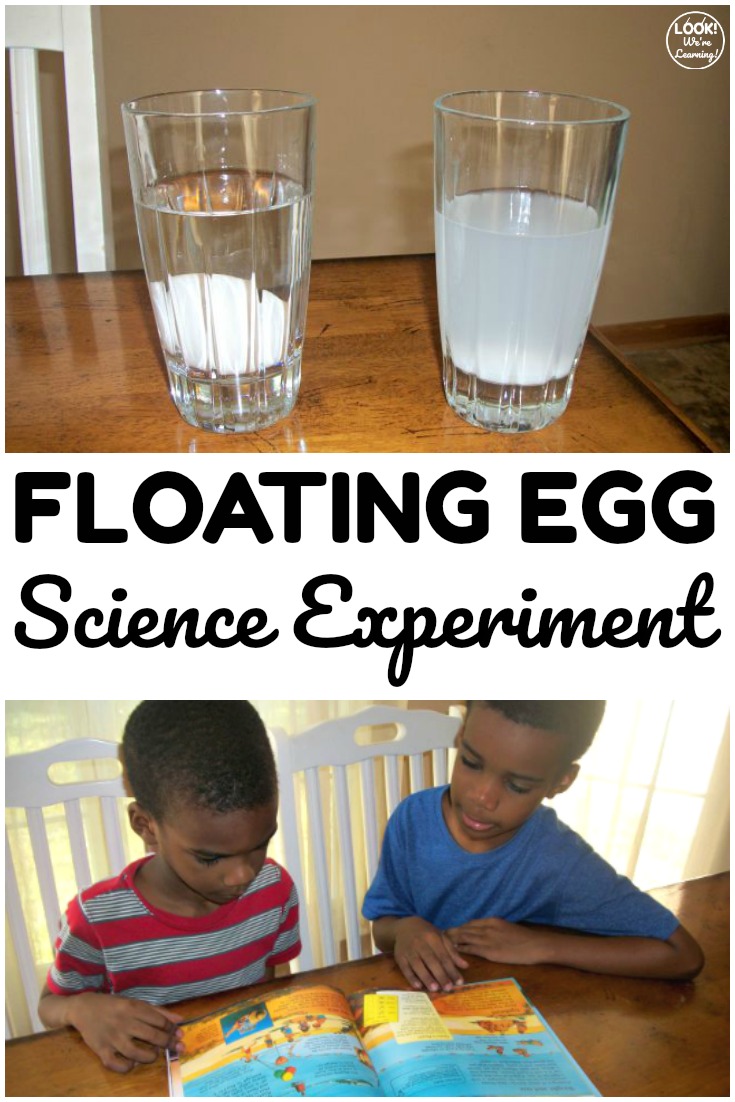
Stop by to see our other science learning ideas!

